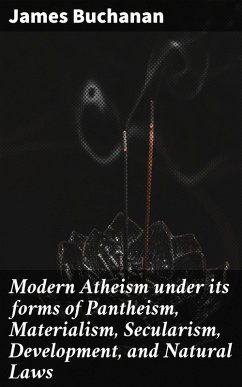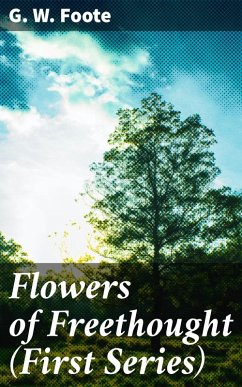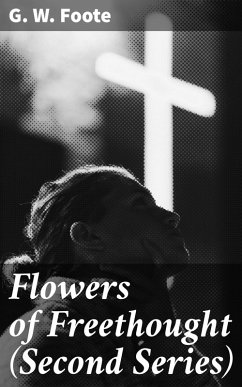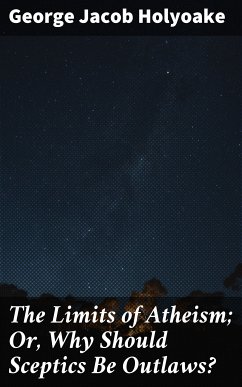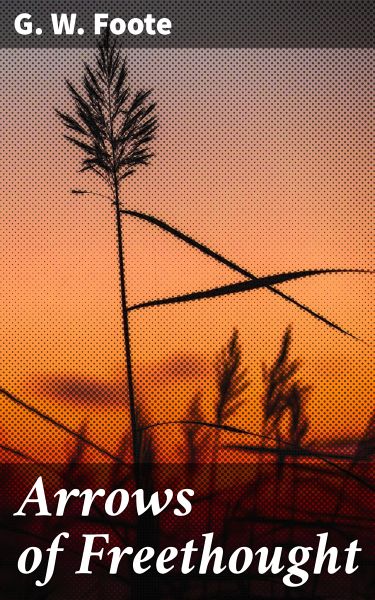
Arrows of Freethought (eBook, ePUB)
Challenging Religious Beliefs with Sharp Wit and Rational Thinking
Versandkostenfrei!
Sofort per Download lieferbar
0,49 €
inkl. MwSt.
Weitere Ausgaben:

PAYBACK Punkte
0 °P sammeln!
In "Arrows of Freethought," G. W. Foote presents a compelling collection of essays that interrogate the foundations of religious belief and advocate for a rationalist worldview. Through a blend of sharp wit, rigorous reasoning, and incisive critique, Foote explores themes of superstition, morality, and the role of religion in society, situating his arguments within the broader context of 19th-century freethought movements. His literary style, characterized by accessible language and a provocative tone, invites readers to engage actively with the content, making it both enlightening and thought...
In "Arrows of Freethought," G. W. Foote presents a compelling collection of essays that interrogate the foundations of religious belief and advocate for a rationalist worldview. Through a blend of sharp wit, rigorous reasoning, and incisive critique, Foote explores themes of superstition, morality, and the role of religion in society, situating his arguments within the broader context of 19th-century freethought movements. His literary style, characterized by accessible language and a provocative tone, invites readers to engage actively with the content, making it both enlightening and thought-provoking in an era defined by dogmatic adherence to faith. G. W. Foote was a pivotal figure in the freethought movement, renowned for his unapologetic challenges to orthodox beliefs and his advocacy for secularism. His experiences as a journalist and editor, coupled with a lifetime of intellectual inquiry, shaped his perspectives on religion and humanism. Foote's activist background and personal encounters with the repercussions of institutionalized belief fuel the passionate urgency of his prose, offering a window into the mind of a thinker who sought to liberate society from the shackles of superstition. "Arrows of Freethought" is essential reading for anyone interested in the interplay between reason and belief, as well as the historical evolution of secular thought. Whether you are a seasoned scholar of freethought or a curious reader seeking to understand the roots of rationalist philosophy, Foote's incisive arguments and engaging style will not only challenge your preconceptions but also inspire a deeper appreciation for the power of critical thinking.
Dieser Download kann aus rechtlichen Gründen nur mit Rechnungsadresse in A, B, BG, CY, CZ, D, DK, EW, E, FIN, F, GR, H, IRL, I, LT, L, LR, M, NL, PL, P, R, S, SLO, SK ausgeliefert werden.








